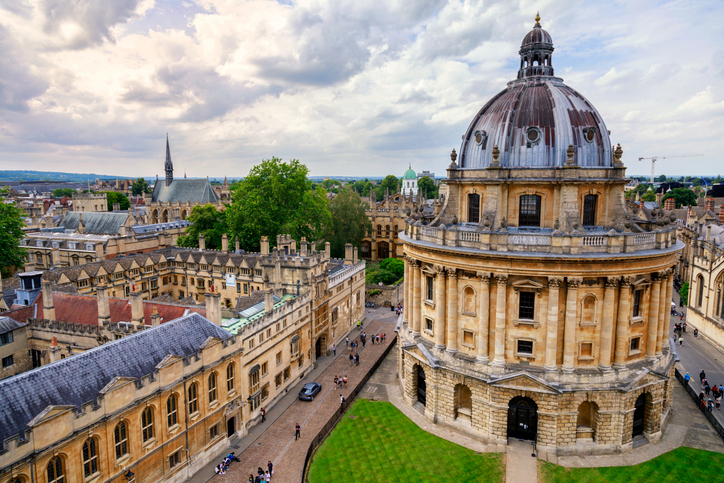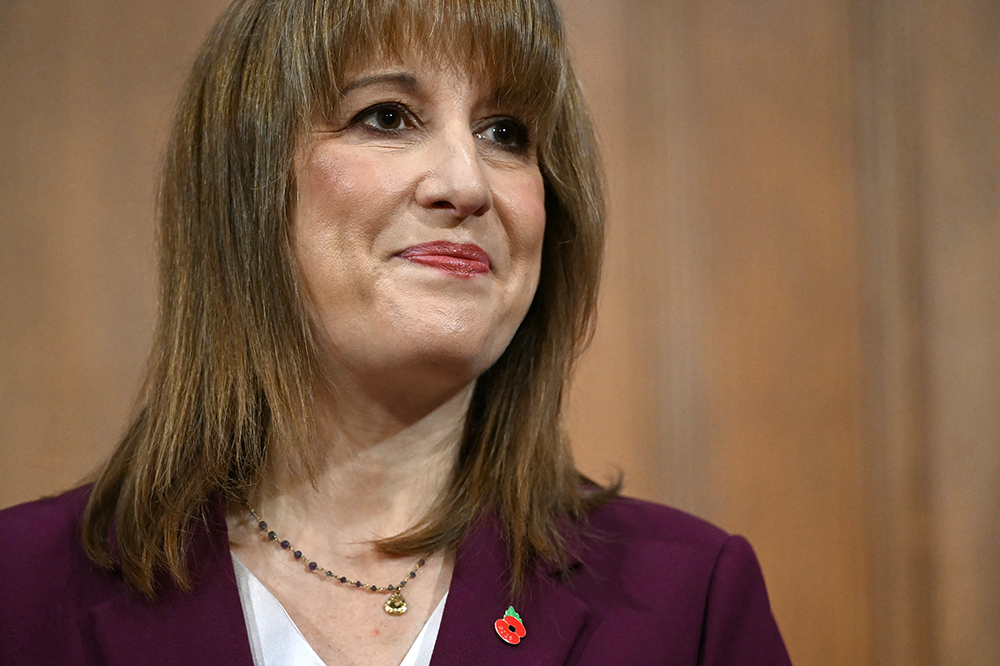Difficult, I know, to spend your life dreaming of having gone to Oxford. This year’s offers have just been announced and Cambridge’s are imminent. I feel for those who miss out, but I have some words of comfort.
My late mother told me I announced my desire to study at Oxford aged seven, visiting the city on a family day trip. My earliest memories of the university, though, came from books: those whose dust jackets announced the name of the author’s college – especially when they mentioned taking a First.
My luck was in coming to understand that the Oxford I longed for was always fictional
Books open a world of dreams, and while my undeveloped tastes ran to witches and elves and orcs, I noticed where Tolkien and his friend C S Lewis taught. Middle Earth and Balliol alike were born of imagination fed by print. Later came the wonder of Brideshead, first through the old Granada series, then via Waugh himself. Morse followed soon after, John Thaw yielding swiftly to Colin Dexter. The elegiac music of those two series sounds like a bell, tolling me back to lost dreams.
Pullman’s His Dark Materials had not yet been written when I trundled down, an awkward 17-year-old, for my interview at Magdalen. Afterwards, the tutor wrote to my school, confessing I had been the weakest of the twelve they had invited, and explaining I had been there solely because they tried to encourage state schools by interviewing as many of their applicants as possible. Quite reasonably, the two places available had gone to others.
I still ache at not having attended the Oxford of Isaiah Berlin and Maurice Bowra, John Bayley and Iris Murdoch. Delusional fancy can place me there momentarily, although it draws a line at picturing myself sitting comfortably in the pub with Christopher Hitchens and Martin Amis: easier, somehow, to imagine sharing a pint at the Turf Tavern with Jude the Obscure.
Harry Mount wrote last week in The Spectator of being pleased at having attended Magdalen. ‘Brad Pitt never need worry about his looks. Elon Musk never has to think about a mortgage,’ he said, and Oxbridge graduates ‘need never feel insecure about where they went to university’.
Unlike Mount, I think the great reassurance of going to one of the world’s top universities is the opportunity to recognise its mediocrity. Amid bright professors and glittering peers, you’ll find the usual proportion of the thoughtless, the willfully ignorant, the shallow, and the muddled – more Lucky Jim than Cambridge’s Nobel-strewn Cavendish. And everywhere, from Peterhouse to Bangor, the same clichés get trotted out by students and staff.
The American writer Joseph Epstein advised his son to aim for a top university solely to avoid spending his life wondering what might have happened had he got into one. Epstein’s son hit the jackpot with Stanford and I, too, got lucky. That letter to my school added that the Magdalen tutors had liked me sufficiently at interview to create a third space on my course that year.
Some of my teaching was excellent, and the community offered by a collegiate system was helpful to a struggling boy. But my luck was in coming to understand that the Oxford I longed for was always fictional – the dreaming spires really were the spires of dreams – that true education came from contact with thoughtful people who took life seriously, and that those people, and their writing, are to be found wherever one looks for them.
Much of what goes on in university is fake, and always will be. Students jump through hoops, playing a game whose prize is a ticket to the next round. My Magdalen tutor held that everyone should be given that ticket the day they arrived, and awarded an instant degree: classes would then be freed for those motivated only by interest, and everyone could choose their own pursuits.
Noel Annan, Provost of King’s and Vice-Chancellor at London, held that elite universities:
cannot teach the qualities that people need in politics and business. Nor can they teach culture and wisdom, any more than theologians teach holiness, or philosophers goodness or sociologists a blueprint for the future. They exist to cultivate the intellect. Everything else is secondary.
The joys and pains of student life were secondary, as was ‘the awakening of a sense of beauty or the life-giving shock of new experience, or the pursuit of goodness itself’. Even our modern household Gods of equality and diversity were not what mattered most. All, he felt, came behind the university’s proper ambition: the cultivation of intellect.
Annan was right. True, universities also serve the function of being brands, stamping their approval onto the CVs of those moving on, but too often we mistake that as their chief purpose, and worry at the few places available. The real function of a university, though – that of serving as an engine of wonder – is not limited. Read Annan and you feast on an intellectual life you would struggle to taste as a fellow at King’s today. For Magdalen, there are Wilde and C S Lewis and Compton Mackenzie and Peter Medawar. You will know the college better, or a better version of the college, by reading them than by strutting the night away in white tie at the Commemoration Ball, plotting to get laid before Finals and secure a job at McKinsey after.
I have had tutorials at All Soul’s, attended lectures at Stanford and Yale, and been taught by Nobel laureates, but the finest seminars I attended were those of the biographer Richard Holmes at the University of East Anglia. They were the finest because they taught, powerfully, that the real company of our best minds, operating in their most vivid moments, is to be had through their writing. The greatest university, or at least some glimpses of it, is there for anyone who seeks it. Deer parks, beautiful stone quads, even a degree certificate: all can be a distraction from what matters – and what is, like a dream, open to everyone, and unattainable.







Comments